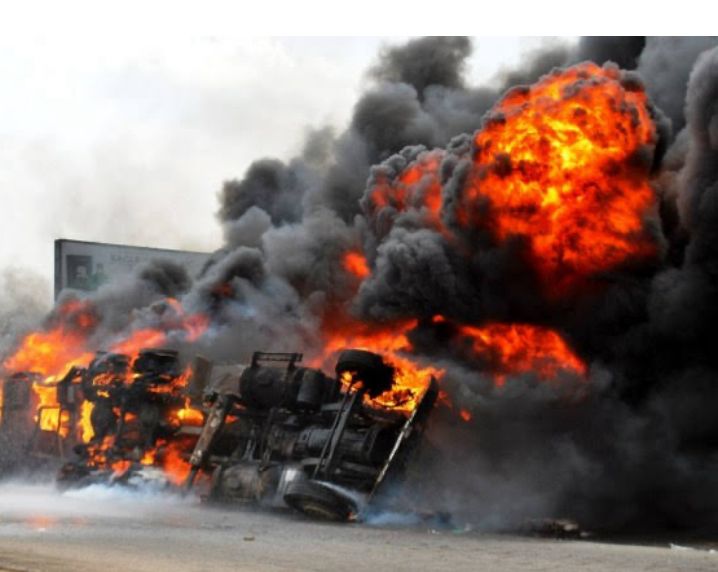
Tanker Explosion at Karu Bridge: Renewed Calls for Daytime Ban on Heavy-Duty Trucks
By Comfort Chukwukelue
A tragic tanker explosion at Karu Bridge, near Nyanya, Abuja, has once again highlighted the urgent need to regulate the movement of heavy-duty trucks on Nigerian roads. The explosion, which occurred on March 19, 2025, resulted in the destruction of over 30 vehicles and raised concerns about multiple casualties.
According to reports, the accident happened when a petrol-laden tanker lost control and crashed on the bridge, igniting a fire that quickly spread to nearby vehicles. Just a day after this catastrophe, another truck carrying fertilizer was involved in a crash at the same location, although no lives were lost in the second incident.
The Need for Regulation
The recent incidents in Karu are not isolated cases. Over the years, Nigeria has witnessed several deadly accidents caused by heavy-duty vehicles, leading to significant loss of lives and property. In 2018 alone, the country lost over ₦39 billion due to tanker and trailer-related accidents, according to the Federal Road Safety Commission (FRSC). Between 2015 and 2018, articulated vehicles were responsible for 3,200 deaths, underscoring the urgency of regulatory action.
Recognizing the threat posed by these accidents, the Nigerian Senate has introduced a bill seeking to restrict the movement of tankers, trailers, and articulated lorries to nighttime hours, between 12:00 midnight and 6:00 a.m. Sponsored by Senator Ned Nwoko, the bill aims to reduce road fatalities, ease traffic congestion, and safeguard lives.
If passed into law, violators would face strict penalties, including fines of ₦500,000 for individuals and ₦5 million for corporate offenders. Vehicles used in daytime operations could also be impounded for up to 30 days, except those transporting essential goods such as medical supplies.
Recurring Tragedies: A Pattern of Negligence
Nigeria has suffered a long history of disasters linked to reckless or poorly maintained heavy-duty trucks. Some of the most devastating incidents include:
• Lagos-Ibadan Expressway (2022): A petrol tanker exploded, killing multiple road users and causing a massive traffic gridlock.
• Onitsha Market Fire (2019): A fuel tanker lost control, crashed, and exploded, destroying businesses and claiming lives.
• Otedola Bridge Explosion (2018): A tanker carrying petrol exploded in Lagos, killing over 50 people and burning dozens of vehicles.
These accidents often result from poor road maintenance, overloaded trucks, mechanical failures, and reckless driving.
Possible Solutions
While restricting truck movement to nighttime hours is a step in the right direction, it must be supported by other measures to ensure effectiveness:
1. Strict Enforcement of Safety Regulations – The FRSC and other agencies must ensure that all heavy-duty vehicles meet safety standards before they are allowed on the roads.
2. Improved Road Infrastructure – Many accidents occur due to poorly maintained roads. The government must invest in road repairs and expansion projects to accommodate heavy traffic.
3. Dedicated Truck Routes – Countries with efficient transport systems often have separate lanes or roads for heavy-duty trucks. Nigeria should consider implementing such a system.
4. Mandatory Driver Training and Certification – Many truck drivers operate without proper training. A structured licensing and certification process should be enforced.
5. Stronger Penalties for Negligence – Companies that allow unfit vehicles or untrained drivers to operate should face severe sanctions to deter reckless practices.
Conclusion
The Karu Bridge explosion is yet another painful reminder of the dangers posed by unregulated heavy-duty vehicles on Nigerian roads. While the proposed bill offers a much-needed solution, it must be accompanied by broader efforts, including infrastructure improvements and strict enforcement of safety laws. If Nigeria fails to act decisively, more lives will continue to be lost due to preventable tragedies.



